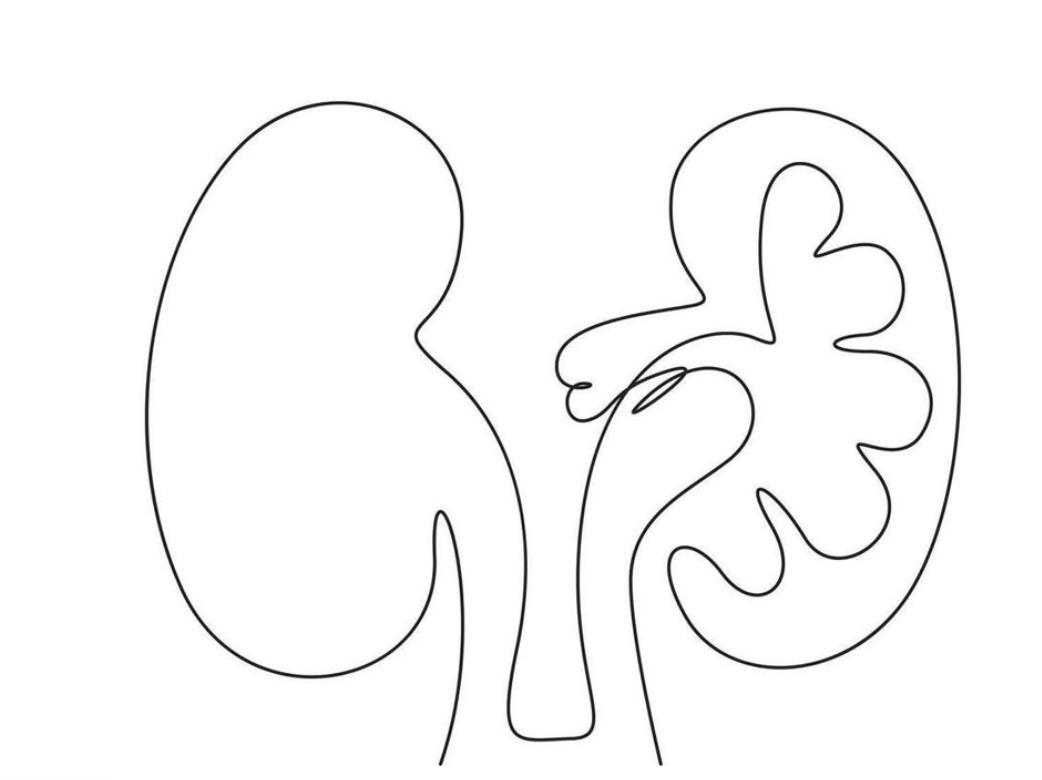A mini surgery, the birth of Tubetitty
Thursday, February 20th, 2020.
The day had come. Around 6 a.m., a complete stranger—a nurse I had never seen before—walked into my room and told me to take a shower with bétadine, that disinfectant the French love to use. He said he’d make my bed and then place an IV in my hand for the doctors, “just in case.”
The surgery was to place a catheter in my chest so I could start dialysis. I was told it would be simple, under local anesthesia, nothing to worry about—“really minimal.” But still, I wanted my mom. I wanted to see her face before walking into that room and facing the unknown. Deep down, I knew it probably wouldn’t be possible with the COVID restrictions, but the child in me still hoped.
The shower was anything but comforting. My hair smelled gross afterward, I dried myself with those tissue-like “towels” that never actually dry you, and then changed into a thin, smelly, transparent blue hospital gown. It felt less like being a patient and more like being a prisoner. Once I was ready, the IV went in. To my surprise—my mom arrived! I was overjoyed. Hugging her before the procedure felt like the biggest gift.
When they explained the surgery, I asked if it would be painful. They reassured me: most people barely feel anything. Still, when I learned it would be local anesthesia, I panicked. I had zero experience with local surgeries, and the thought of injections in my neck or chest made me shake. I remembered when my little sister split her head open at the British Club at five years old—I was there when she was injected with local anesthesia. It wasn’t pretty. The doctor assumed I already knew, and when I realized it wasn’t going to be general anesthesia, I froze. They tried to reassure me: “It’s just like a blood test in your neck.” Weirdly enough, that calmed me down.
By 11 a.m., the nurses arrived to wheel me off. The surgery was supposed to be at 5 p.m., but because others canceled, I got moved up. Maybe they got lucky and magically cured overnight—I’ll never know. What I do remember are the nurses’ faces when they entered my room. They didn’t expect someone so young. I said goodbye to my mom, took a deep breath, and off I went to the bloc opératoire.
Rolling down the hallway, I started counting the lights above me—just like in Red Bracelets, that TV show about sick kids. “1, 2, 3, 4…” until the operating room doors swung open, just like in Grey’s Anatomy. The room smelled sterile, metal everywhere, and freezing cold.
They slid me under a huge echography machine and told me to lie on my side. My nerves were buzzing, so I started chatting with the surgeon, asking questions I already knew the answers to. He told me calmly, “Two injections in your neck.” I wanted to cry. He reassured me, “Come on, we’re not going to put you under general anesthesia for a simple catheter!” Simple for him—terrifying for me.
“How long will it take?” I asked. “About two hours,” he replied.
They covered me with a blue sheet so I couldn’t see anything, disinfected the area, and then distracted me with questions. I knew the technique well—doctors had used it when I was little and terrified of blood tests. The injections hurt, but not as badly as I’d feared. Within minutes, the area was numb. I could feel every tug and push, but no pain.
When it was finally over, I was wheeled into recovery. My neck hurt, I felt drained, and the wound wouldn’t stop bleeding for a while. Eventually, they brought me back to my room, where my mom was waiting. Later, Anne-Charlotte came by, and we chatted about everything and nothing, which helped me forget, even for a moment, what had just happened.
That night, I went to bed early—tomorrow would be my very first dialysis session. To cope, I gave my catheter a name: Tube Titty. Adding a personality to it somehow made things easier.
It was the start of a new chapter: me and Tube Titty, side by side.

